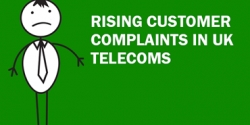Outsourcing public sector customer service
This affects customer service in two ways – firstly, customer contact is now often outsourced itself to private contact centres, and secondly the new providers need to convince the public that they are delivering the right level of service to citizens. For example, if you have a question about when your rubbish bin will be emptied and end up holding for 20 minutes when you call the new contractor you are quite rightly going to be hopping mad.
But it isn’t always that easy for those taking on public services – they have to either build an infrastructure from scratch or take over existing council or government facilities and incorporate them into their overall infrastructure. And all against a backdrop of citizens who, quite rightly, want the highest levels of service.
From Eptica’s experience of working with organisations across all sectors here are five quick ways of ensuring outsourced public sector customer service is seamless and high quality:
1 Share the knowledge
Citizens will be asking questions across a whole range of channels – email, web, letter, phone and now social media. Rather than creating separate silos of information for each of these channels, build and share a central knowledgebase that agents and the public can all access to provide consistent, fast answers.
2 Embrace technology
The majority of us are now on the web and email. Therefore make sure that you provide the ability to ask questions via the web, along with a clear route for those that want to send an email. It is a lot quicker for the citizen, more efficient to operate and will raise service levels.
3 Make service measurable
Most outsourcing contracts feature Service Level Agreements (SLAs) which set the standards that must be met across a range of metrics if a provider is not to be penalised. The public sector must ensure that customer service is one of these measurements – after all, it is how citizens judge the service they receive.
4 Keep your promises
Nothing upsets a customer more than a broken promise. So when dealing with customer enquiries outsourcers need to make sure that they are sticking to what they say. If you guarantee to respond to emails within a day or answer a phone within three minutes, then make sure the customer knows what to expect and deliver on it. Otherwise it will sour the whole experience – even if the query is successfully resolved.
5 Use customer feedback
Understanding the needs of customers is central to providing them with the products and services they want. This is exactly the same when it comes to public services – so capture and analyse the questions that citizens are asking and use this information to amend what you are offering. For example, if you get lots of emails and calls asking about how late a particular recycling centre stays open, move this information to the front of your website where it is immediately visible and consider extending opening hours to meet demand.
For public sector outsourcing to work, it must have customer service at its heart. That way it will deliver not just effective services but increased satisfaction for citizens, benefiting everyone involved.







Comments